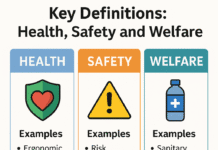
Heat Stress Symptoms
Heat stress can pose significant risks to individuals, particularly during hot weather or strenuous physical activity. Understanding the symptoms of heat stress is crucial for early detection and prevention of potential health complications.
1. Introduction to Heat Stress
Heat stress occurs when the body’s internal temperature regulation mechanisms are overwhelmed by external factors such as high temperatures, humidity, or physical exertion. It can affect anyone, regardless of age or physical condition, and if left untreated, it can lead to serious health issues.
2. Understanding the Causes of Heat Stress
Heat stress can be caused by various factors, including environmental conditions such as high temperatures and humidity, as well as individual factors like dehydration and lack of acclimatization.
3. Common Symptoms of Heat Stress
Mild Symptoms
Mild symptoms of heat stress may include:
- Excessive sweating
- Fatigue
- Thirst
- Muscle cramps
Moderate Symptoms
Moderate symptoms may include:
- Headaches
- Dizziness
- Nausea
- Rapid heartbeat
Severe Symptoms
Severe symptoms indicate a medical emergency and may include:
- Confusion
- Fainting
- Seizures
- Loss of consciousness
4. Factors Affecting Heat Stress Symptoms
Several factors can influence the severity of heat stress symptoms, including age, fitness level, pre-existing medical conditions, and medication use.
5. Effects of Heat Stress on the Body
Heat stress can have detrimental effects on the body, including dehydration, heat exhaustion, and heat stroke. These conditions can lead to organ damage and even death if not promptly treated.
6. Recognizing Heat Stress in Different Environments
Heat stress can manifest differently depending on the environment, whether it’s in the workplace, during outdoor activities, or while exercising. It’s essential to recognize the signs and symptoms to take appropriate action.
7. Prevention and Management of Heat Stress
Preventing heat stress involves implementing strategies to reduce exposure to extreme heat and humidity, staying hydrated, and taking regular breaks in shaded or air-conditioned areas.
8. Importance of Hydration
Staying hydrated is crucial in preventing heat stress. Drinking plenty of water and electrolyte-rich fluids helps maintain proper body temperature and replace fluids lost through sweating.
9. Proper Attire and Equipment
Wearing lightweight, breathable clothing and using protective gear can help minimize heat stress during physical activity or outdoor work.
10. Training and Education on Heat Stress
Educating individuals about the risks of heat stress, its symptoms, and preventive measures is essential for promoting safety and well-being in various settings.
11. Impact of Heat Stress on Health and Performance
Heat stress can impair physical and cognitive performance, increasing the risk of accidents, injuries, and decreased productivity, particularly in occupational settings.
12. Addressing Heat Stress in Vulnerable Populations
Certain groups, such as the elderly, children, and individuals with chronic health conditions, are more susceptible to heat stress and require special attention and care during hot weather.
13. Emergency Response to Heat Stress
Prompt recognition and appropriate management of heat-related emergencies, such as heat exhaustion and heat stroke, can prevent serious complications and save lives.
14. Long-term Health Implications
Chronic exposure to heat stress can have long-term health consequences, including cardiovascular diseases, kidney disorders, and heat-related illnesses.
15. Conclusion
In conclusion, understanding the symptoms of heat stress and taking proactive measures to prevent its onset are essential for maintaining health and safety in various environments. By staying informed, staying hydrated, and prioritizing safety protocols, individuals can minimize the risks associated with heat stress and enjoy a healthy, active lifestyle.
FAQs
- How does humidity affect heat stress symptoms? Humidity can exacerbate heat stress by hindering the body’s ability to cool itself through sweat evaporation, leading to increased discomfort and higher risk of heat-related illnesses.
- Are certain medications or medical conditions more susceptible to heat stress? Yes, certain medications and medical conditions can impair the body’s ability to regulate temperature, increasing susceptibility to heat stress. It’s essential to consult a healthcare professional for personalized advice.
- What are some practical tips for preventing heat stress during outdoor activities? Wearing lightweight, light-colored clothing, taking frequent breaks in shaded areas, and staying hydrated are crucial for preventing heat stress during outdoor activities.
- How can employers mitigate the risks of heat stress in the workplace? Employers can implement measures such as providing adequate ventilation, scheduling strenuous tasks during cooler hours, and conducting regular training on heat stress awareness and prevention.
- When should I seek medical attention for heat stress symptoms? If you or someone else experiences severe symptoms of heat stress, such as confusion, fainting, or seizures, seek immediate medical attention. Heat stroke is a medical emergency that requires prompt treatment.
























